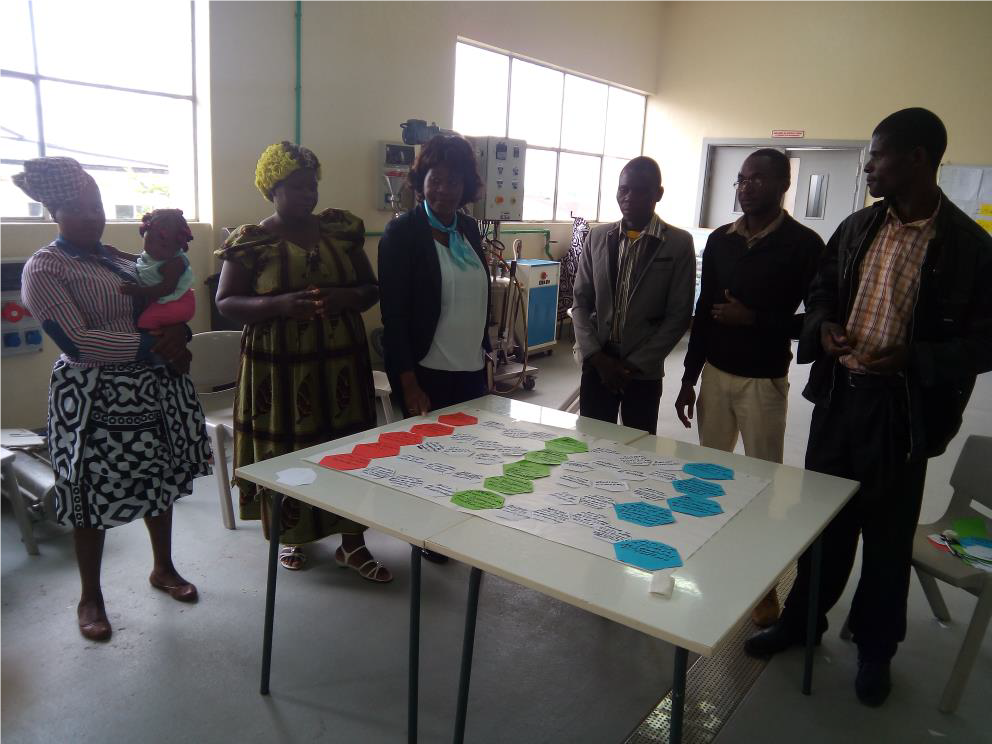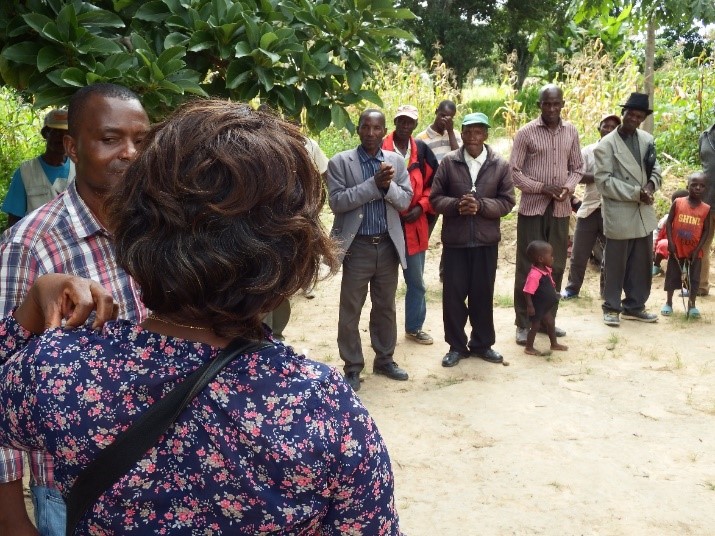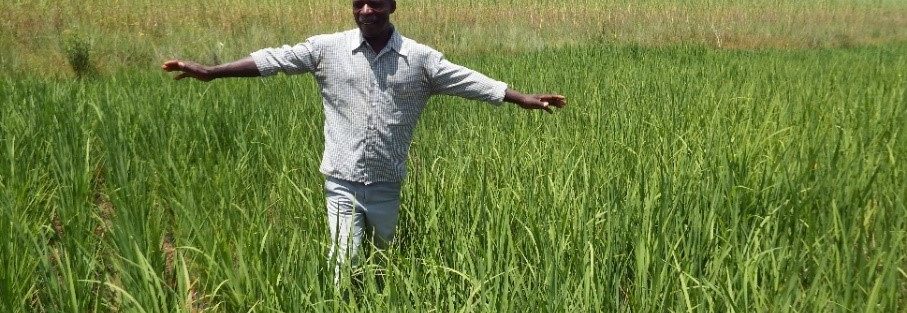
Growing hope, from new knowledge on a new crop
Rice is produced in other parts of Angola, but not in the area around Bailundo, though conditions are favourable and there is much local demand. Building on the provision of technical expertise from other organisations, CDAIS is adding capacity development of another sort, of the ‘soft skills’ required to collaborate, learn, engage and adapt. “Now we will grow rice forever” says Marcos Satuala. “This innovation has given us a great thing – a new crop for us. And with CDAIS we can learn more, and grow more, for our families and to sell.”
“Our group produced 2.5 tonnes of rice last year, when before we produced no rice at all” says group member Zacarias Cassinda. Others added that it is not financial support they need, but technical help, and that they are grateful that CDAIS is helping them to source this, and teaching them how to make the necessary connections. But they know full well that they have to ask, repeating the local saying “that if a baby that doesn’t cry, it doesn’t get its mothers milk.”
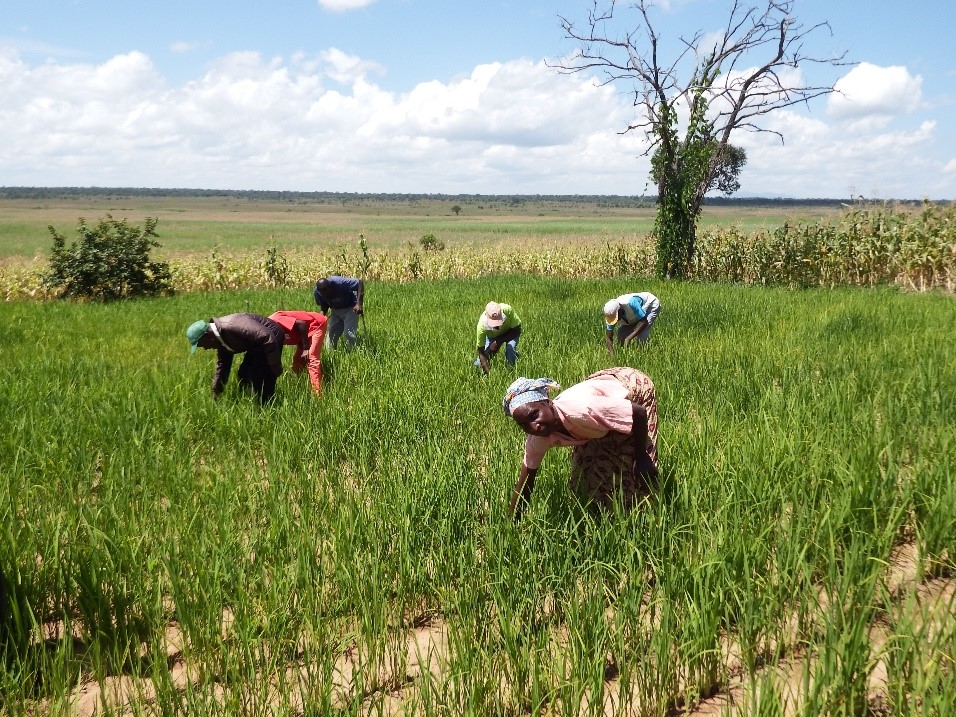
“We could have all the credit in the world, but if we don’t have the skills to use the money wisely, it would all be wasted.” Zacaria Cassinda, member of the Alimuat farmer association, Bailundo.
The rice school
With 183 members from four village areas, the Associação Alimuat was formed in 2010 by farmers who saw the advantages of working together and the advantages that this could bring to everyone. Then in 2015 they took an initiative. As with so many farmers in the area they mainly grow maize and beans, but they also eat rice at home, though they had never grown rice before. Having no idea how to grow it, they made contact with the local agricultural extension agency, the Estação de Desenvolvimento Agrário (EDA) local unit of Instituto de Desenvolvimento Agrário (IDA). They in turn made contact with the national Instituto de Investigação Aronómica (IIA), and an idea was born. The final piece of the puzzle was to link up with the Japanese International Cooperation Agency (JICA), who agreed to offer material and technical assistance for a two-year period. And one of the innovations that was created was the ‘rice school’.
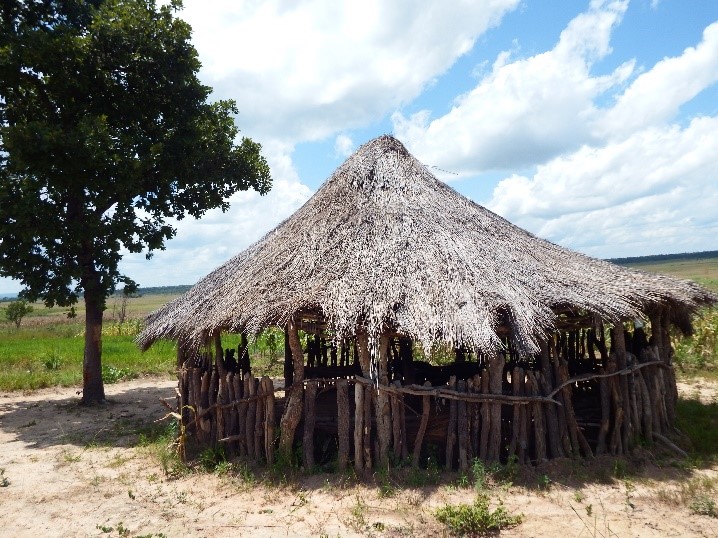
In 2016, this rice partnership was selected to be one of the CDAIS innovation partnerships. Farmers were receiving seeds and other inputs and technical training, but still lacked adequate functional capacities to make the most of this support. So CDAIS could help to fill that gap. The work goes on, with farmers now preparing for their second harvest, and they are learning all the time. IIA and IDA have established several sites for the innovative ‘rice schools’, where association members come and work each Monday, to learn basic skills, and where they are also testing new varieties and cultivation techniques. But some farmers are also trying different methods on their own land, for example by looking at the effects on time and cost when transplanting seedlings rather than direct sowing. One farmer, Julino Paulo, explains, “I use fewer seed when transplanting but it takes more time. Now I wait to see which will produce more.”
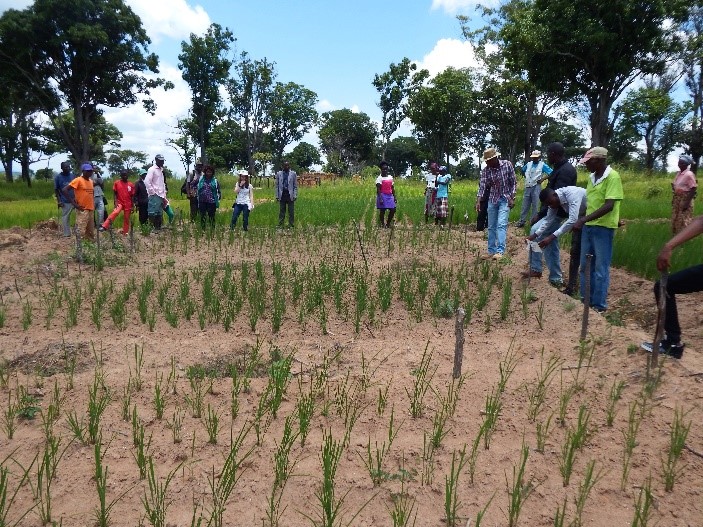
Making change happen
Following selection of this partnership by the Angolan CDAIS technical working group, a capacity needs assessment workshop was held over three days in early October 2016. The partnership includes the Alimuat farmer association, the national agricultural research institute and the province agricultural extension unit, amongst others. Vuvu Nzambi from the national research institute (IIA) explains that in other provinces rice growing is the domain of large scale farmers, and what is additionally innovative here is the passing of rice growing skills to smallholders. Since this initial workshop, group members have been for five different training courses, and the head of the association, Marcos Satuala speaks highly about what has been learnt by them and passed on to others. And the work goes on. But as many of the farmers accept and respect, change can only happen slowly. “He who goes quickly catches only one rabbit, but he who goes slowly and carefully will catch two…” said one partnership member.
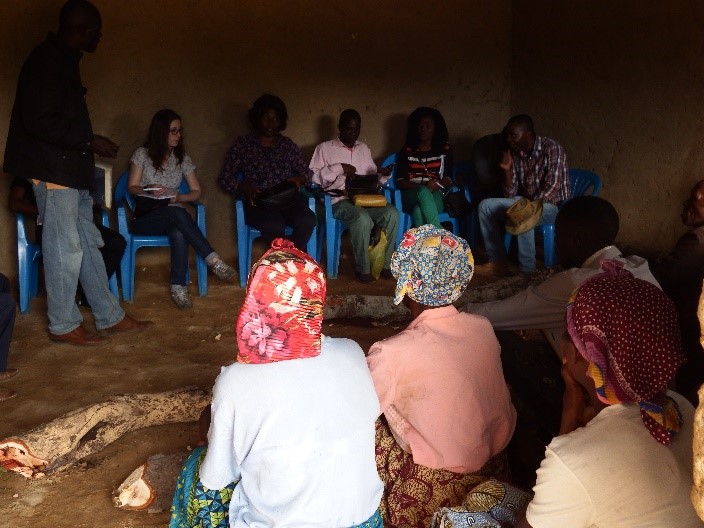
“We like the help from CDAIS, and it encourages us so much to have visits to our fields. I hope it can continue…” Manuel Kapungo, member of the Alimuat farmer association, Bailundo.
Making steps in the right direction
“We have learnt the benefits of working in a group, but now need to learn how to calculate our costs” says Manuel Kapongo, treasurer of the group. Elias Tiago, member of the association, explains how he has learnt technical aspects such as the products he needs, but CDAIS has helped him to think about how he can best source these, and to find experts who can teach him how he can use them most effectively and efficiently.
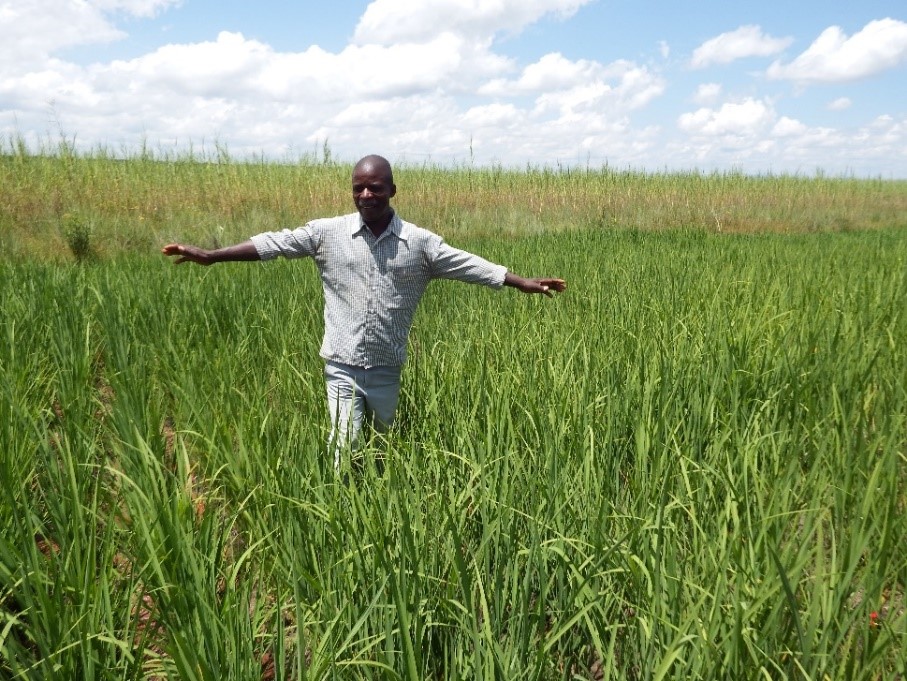
But outstanding needs remain
“We welcome you here where so few come” says Solino Kalalika, the soba, the traditional village head. “But we need more tools, seeds and transport”, a view expressed by many. However, privately, Maria Fátima do Nascimento, CDAIS country programme manager for Angola, explained this reasoning. “We see issues of dependency here so clearly, and that still need to be overcome. After the civil war, the government helped a lot in rebuilding a renewed agricultural base, by providing seeds, fertilizers, tools – everything – all for free. So most people still expect the same, and find it hard to accept that this can no longer be the case. But as CDAIS is showing, if they work together and learn to link with others, that they can lose this dependency and stand proud in the knowledge that have built something themselves.
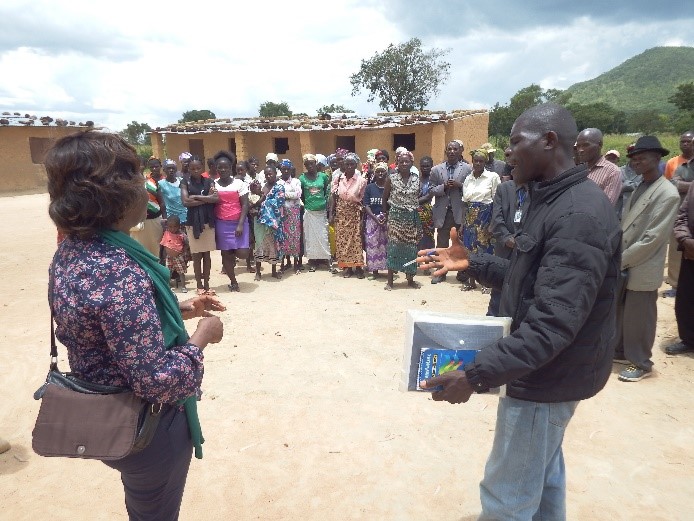
In one of the meetings, farmers say again that they still need a rice dehusker. So the question is asked, again, “how will you get one? You think, you decide.” And now they think… and one can hear the whispers – ‘we can’t just ask for one’ – and they discuss between themselves, and one replies. “If we become a formalised group we can ask for a loan, and buy one that everyone can use…” And that process is CDAIS, in practice.
“But we still need to convince the government that to support us in our efforts is good for the national economy, as it will reduce rice imports” says Zacarias Cassinda. And this is a point that will surely be taken up to the national level for the policy dialogue that CDAIS is in the process of organising.
And although the association has a charter and has elected members into positions of chair, secretary, treasurer, etc., they are still not formalised. CDAIS will now help them go through the legal process of registering their association, and which will empower them when they choose to approach banks for loans, or others for additional support.
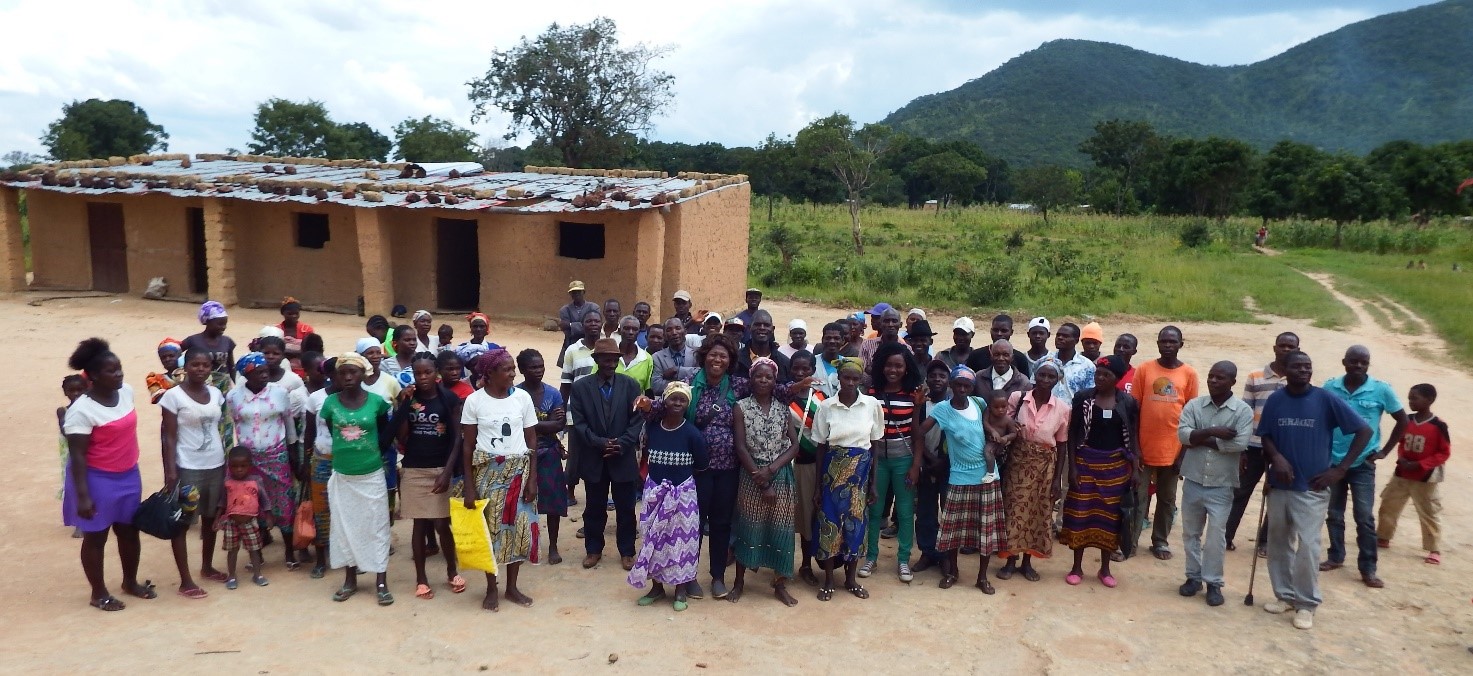
“Our dream is to increases our production not just for us but to benefit the whole economy, and CDAIS is helping us by teaching us how to negotiate at all levels.” Marcos Satuala, head of the Alimuat farmers association, Bailundo



